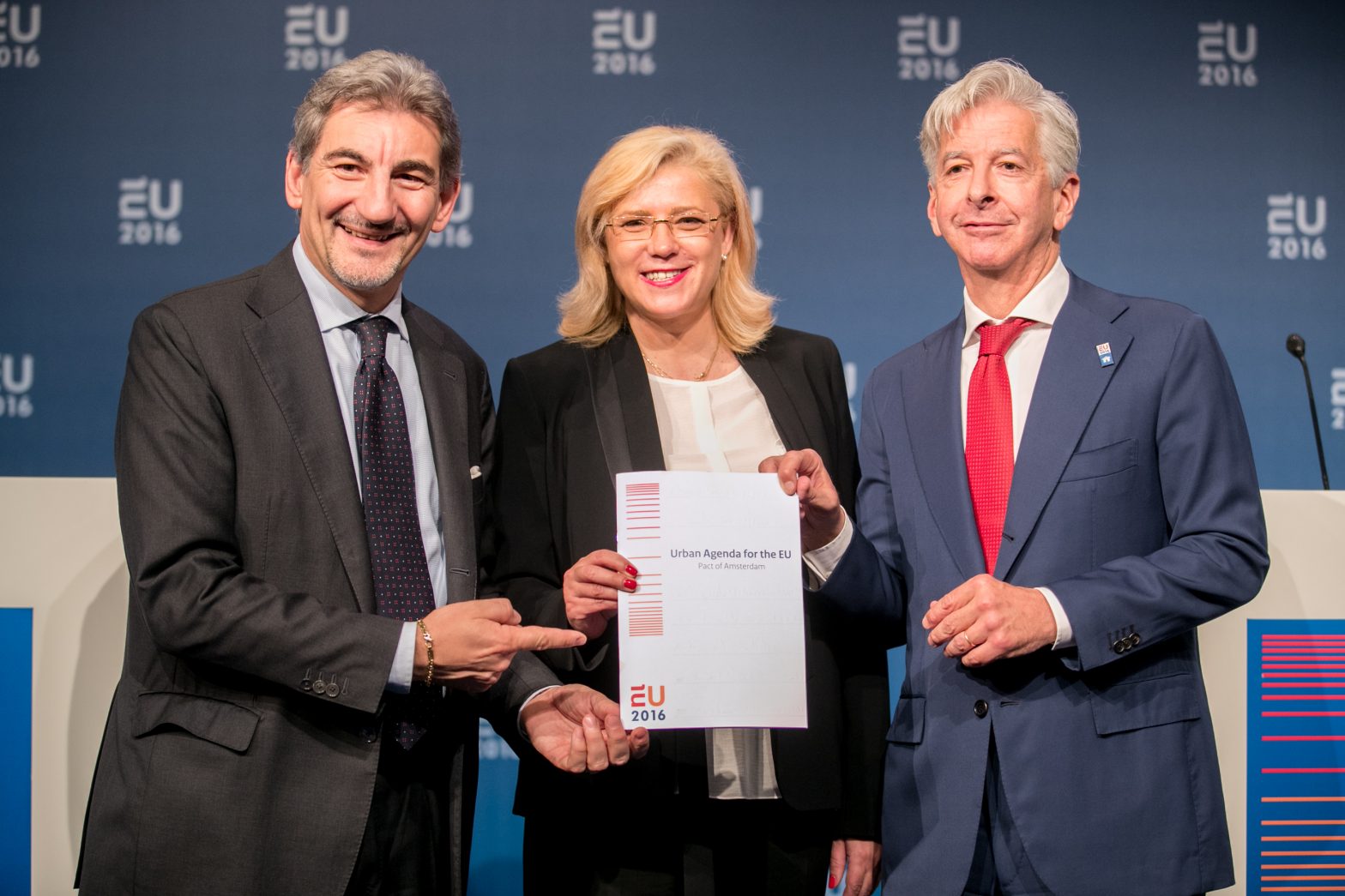
Photo: 26762904023_f95d5a6ee1_o
EU to ‘cut red tape’ for cities
31 May 2016
by Jonathan Andrews
Ministers from across Europe have adopted a European Union (EU)-wide pact that puts finance at the heart of a new urban agenda.
The Pact of Amsterdam lays out the framework for the Urban Agenda for the EU which directs EU institutions to work for better funding, regulation, and knowledge sharing for local and regional governments. The EU has pushed the agenda as by 2050, 80 percent of Europeans will live in urban areas.
“[This Pact] is a blueprint for the economic, environmental, and social future of our cities and our citizens,” said Jan Vapaavuori, Vice President, European Investment Bank [EIB] whose responsibilities include urban development. “The Urban Agenda specifies the importance of the EIB in providing smart funding to our smart cities. The bank is key to improving funding and knowledge sharing for urban authorities across Europe.”
At the heart of the Urban Agenda will be the development of 12 partnerships on 12 identified urban challenges. The partnerships will allow cities, member states, EU institutions and stakeholders, such as NGOs and business partners, to work together on an equal basis to find common ways to improve urban areas in the EU.
Apart from easing access to funds and finance, action plans designed by the partnerships will focus on a more effective and coherent implementation of existing EU policies in cities in the fields of environment, transport and employment, for example.
“The Urban Agenda shows that the EU is committed to better–not more–regulation,” remarked Markku Markkula, President of the European Committee of the Regions. “But we are at the very beginning and its success depends on the continuous commitment from all decision makers. I call on all pioneering cities to now take the lead.”
Welcoming Markkula’s comments, Johanna Rolland, President of EUROCITIES and Mayor of Nantes, warned that the success of the urban agenda depends on strong political leadership within the European Commission. EUROCITIES is also advocating an ‘urban envoy’ within the Commission that would help drive and oversee the implementation of the agenda.
“Adopting the Pact of Amsterdam is just a start,” said Rolland. “What matters now is how we all put our urban agenda into practice. Our citizens deserve real commitment from all European stakeholders, beyond simple cooperation.”
Four pilot partnerships have already started: on the inclusion of migrants, coordinated by the city of Amsterdam; on air quality, coordinated by the Netherlands; on housing, coordinated by Slovakia; and on urban poverty, coordinated by Belgium and France. The remaining partnerships will be launched between the end of 2016 and the summer of 2017.









